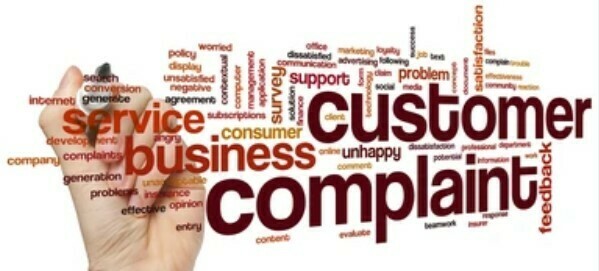
Building Relationships With Your Customers
Introduction to Trust in Customer-Seller Relationships
Hey there, folks! Welcome to the world of trust-building in business, Howard style! At Achieve with Howard, I know that trust is the secret sauce that makes businesses thrive. Let’s examine why trust is crucial for success, especially in today’s digital playground, and how it can boost customer loyalty and sales.
The Lowdown on Trust and Business Success
Trust is like a handshake in business—it seals the deal. It keeps customers returning for more and singing your praises to everyone they know. When customers trust you, they’re not just buying your products or services but investing in a relationship.
In today’s digital age, where face-to-face interactions are rarer than a unicorn sighting, trust is more vital than ever. Customers need to feel confident hitting that “buy now” button and knowing that what they see is what they’ll get. This means being upfront, reliable, and consistent in everything you do.
Building Trust in the Digital Jungle
Building trust online isn’t a walk in the park, but it’s doable with the right approach. Here are some Howard-approved strategies:
Be Transparent: Share the good, the bad, and the ugly. Honesty goes a long way.
Stay Reliable: Consistency is key. Deliver top-notch products and services every time.
Keep It Secure: Make sure your customers’ data is Fort Knox secure.
Ace Customer Support: Be there when your customers need you. Prompt and friendly support can work wonders.
Show Off Social Proof: Let your happy customers do the talking. Positive reviews and testimonials build credibility.
Stay in Touch: Keep your customers in the loop. Communication is key.
Personalize It: Treat your customers like individuals. Tailor your offerings to their needs.
The Impact of Trust on Loyalty and Sales
Trust isn’t just a warm and fuzzy feeling—it’s also great for business. When customers trust you, they’re more likely to stick around and become repeat customers. They’ll also recommend you to their friends and family, which means more sales and a growing fan base.
Plus, in a sea of competitors, trust is your secret weapon. It sets you apart and makes you the go-to choice for customers looking for a reliable partner.
In a Nutshell
Trust is the secret sauce that makes businesses thrive, especially in today’s digital age. Building trust through transparency, reliability, and exceptional customer service can create a loyal customer base and stand out. And that’s how we do it at Achieve with Howard!
So please trust that the resources I offer are Howard-approved!

The Fundamentals of Trust-Building for Sellers
So, now let’s dive into the fundamentals of trust-building in the sales world, Howard style! I’ll explore why transparency, consistency, professionalism, and expertise are key to building customer trust.
Transparency: The Bedrock of Trust
Transparency is like the foundation of a sturdy house—it holds everything together. When transparent with your customers, you build a relationship based on honesty and integrity. Share information about your products, services, and business practices openly; your customers will trust you more.
Talk to your customers before you start selling to them. Form a relationship with them to understand their needs. Once you do that, you can prove that your product can solve their problem, and they will more likely trust you.
Consistency: The Key to Trustworthy Relationships
Consistency is the key to trust-building. Whether it’s the quality of your products, the reliability of your services, or the messaging in your marketing, consistency breeds trust. When customers know they can count on you to deliver repeatedly, they’ll keep returning for more.
Professionalism and Expertise: Winning Trust, One Interaction at a Time
Professionalism and expertise are like your trusty sidekicks in the world of sales. They go a long way when you interact with customers, whether in person, over the phone, or online. Show your customers that you know your stuff and that you’re committed to providing top-notch service, and they’ll trust you with their business.
In Conclusion
Trust-building is essential for sellers looking to create lasting relationships with their customers. By prioritizing transparency, consistency, professionalism, and expertise in your interactions, you can build lifetime trust. So, put these fundamentals into practice and watch your relationships with your customers flourish!

Developing a Customer-Centric Selling Approach
Now, let’s look at the world of customer-centric selling! I’ll explore why putting customer needs first, tailoring the shopping experience, and using active listening and adaptive selling techniques are crucial for success.
Putting Customer Needs First: The Heart of Customer-Centric Selling
Customer needs should always be front and center in your selling approach. You can tailor your offerings to meet their expectations by understanding what your customers want and need. This customer-first mentality builds trust and loyalty, laying the foundation for long-term relationships.
Tailoring the Shopping Experience: One Size Doesn’t Fit All
Every customer is unique, so why treat them all the same? Tailoring the shopping experience to different buyer personas can make all the difference. By understanding the preferences and behaviors of different customer segments, you can create personalized experiences that resonate with each group.
Active Listening and Adaptive Selling: The Dynamic Duo of Sales
Active listening and adaptive selling are like peanut butter and jelly—they’re both great but even better together. Active listening involves truly hearing what your customers are saying and responding in a way that addresses their needs.
On the other hand, adaptive selling is about being flexible and adjusting your approach based on the customer’s responses. Together, these techniques create a dynamic selling approach that puts the customer at the center of the conversation.
Customer-centric selling is all about putting the customer first. You can create meaningful connections with your customers and drive sales by prioritizing customer needs, tailoring the shopping experience, and using active listening and adaptive selling techniques. So, go ahead, embrace the customer-centric approach, and watch your sales soar!

Leveraging Social Proof to Build Credibility
Let’s not forget to explore the power of testimonials and reviews, the value of user-generated content, and how to incorporate social proof into your marketing strategies.
The Power of Testimonials and Reviews: Your Secret Weapons
Testimonials and reviews are like gold dust in the world of sales. They’re powerful tools that can help build credibility and trust with potential customers. When people see positive feedback from others who have used your products or services, they’re more likely to trust and give you a shot.
User-Generated Content: Harnessing the Voice of the Customer
User-generated content (UGC) is another fantastic way to build trust with your audience. When customers create content about your brand, whether it’s reviews, social media posts, or videos, it adds authenticity and credibility to your brand. It shows that real people are using and loving your products, which can be incredibly persuasive.
Incorporating Social Proof into Your Marketing Strategies: The How-To Guide
Incorporating social proof into your marketing strategies is easier than you might think. Here are a few Howard-approved tips:
Showcase Testimonials and Reviews: Feature glowing testimonials and reviews prominently on your website and marketing materials. For example, here are reviews for another venture of mine as an RV consultant and Trainer.
Highlight User-Generated Content: Share UGC on your social media channels and website to showcase real-life experiences with your brand.
Use Social Proof in Your Ads: To build credibility, incorporate testimonials, reviews, and UGC into your advertising campaigns.
Encourage Customer Feedback: Ask your customers for reviews and feedback, and make sharing their experiences easy.
Monitor and Respond: Monitor reviews and feedback and respond promptly and professionally to any negative feedback.
Social proof is a powerful tool for building credibility and trust with your audience. By leveraging testimonials and reviews, harnessing the power of user-generated content, and incorporating social proof into your marketing strategies, you can boost your credibility, win over customers, and take your sales to new heights. So, embrace the power of social proof and watch your business grow!

Enhancing Communication and Availability
Next, I want to explore the importance of open lines of communication, timely responses, multichannel support, and proactive outreach and follow-up practices.
Open Lines of Communication and Timely Responses: Keys to Customer Satisfaction
Open lines of communication are like bridges that connect you to your customers. By making it easy for customers to reach you and responding promptly to their inquiries, you can show them that you care about their needs and are committed to providing excellent service.
Multichannel Support: Meeting Customers Where They Are
In today’s fast-paced world, customers expect to be able to reach you through a variety of channels. Whether it’s a phone, email, chat, or social media, offering multichannel support can make it easier for customers to contact you and resolve their issues quickly and conveniently.
Proactive Outreach and Follow-Up: Going the Extra Mile
Proactive outreach and follow-up are like icing on the cake of customer service. By reaching out to customers proactively to check in on their satisfaction or following up after purchase to ensure everything is going smoothly, you can show them that you’re committed to their satisfaction and willing to go the extra mile to make things right.
Incorporating these practices into your customer service strategy can help you build stronger relationships, increase customer satisfaction, and drive loyalty and repeat business.

Addressing Problems and Complaints Effectively
You must embrace a problem-solving mindset, have transparent policies for returns and disputes, and learn from customer feedback to improve service.
Embracing a Problem-Solving Mindset: Turning Challenges into Opportunities
A problem-solving mindset is like a superpower in customer service. Instead of seeing complaints as obstacles, view them as opportunities to learn and improve. You can turn unhappy customers into loyal advocates by approaching problems with a positive attitude and a willingness to find solutions.
Transparent Policies for Returns and Disputes: Building Trust Through Clarity
Transparent policies for returns and disputes are like a safety net for your customers. By clearly outlining your policies and procedures, you can build trust and confidence with them. They’ll know exactly what to expect if they need to return a product or resolve a dispute, which can help reduce anxiety and uncertainty.
Learning from Customer Feedback: The Key to Continuous Improvement
Customer feedback is like a treasure map, leading you to hidden gems of insight. By listening to your customers and taking their feedback to heart, you can identify areas for improvement and make changes that will benefit your business and your customers.
Whether it’s a suggestion for a new product or a complaint about a service issue, every piece of feedback is an opportunity to learn and grow.
Incorporating these practices into your customer service strategy can help you effectively address problems and complaints, build trust and loyalty with your customers, and continuously improve your service.

Cultivating Trust Through Ethical Practices
In the world of sales and marketing, cultivating trust is paramount for success. This trust is built through various practices, with a commitment to ethical standards and corporate social responsibility. You can establish credibility and trust with your customers by conducting business transparently and ethically.
Another key factor in building trust is avoiding misleading marketing practices. Customers are more likely to trust honest and upfront companies about their products and services. You can build trust and loyalty with your customers by avoiding deceptive tactics and being transparent in your marketing efforts.
Sustained effort in community building and engagement is also essential for cultivating trust. By actively engaging with your client’s community and building meaningful relationships with them, you can create a sense of belonging and loyalty with the people they know.
Trust is built through ethical practices, transparent marketing efforts, and meaningful community engagement. By prioritizing these practices, companies can establish themselves as trustworthy and reliable partners in the eyes of their customers.
Learn more about Howard by Clicking Here!

